The Perfect Marriage
Brief Synopsis
Cast & Crew
Lewis Allen
Loretta Young
David Niven
Eddie Albert
Charles Ruggles
Virginia Field
Film Details
Technical Specs

Synopsis
On their tenth wedding anniversary, Maggie and Dale Williams, who are thought by their friends to have a perfect marriage, confess that they have become merely "highly intimate acquaintances" who are more involved with their careers than with each other. The next morning, after their daughter Cookie tells her intrusive grandmothers that Dale slept in the study, Maggie and Dale are each confronted by their mothers, but deny any trouble. Maggie's mother, Dolly Haggerty, insists that Maggie should have married Captain Gil Cummings, her childhood sweetheart. Next, Maggie and Dale's friend, Gloria, a divorcée, visits in order to borrow a hat before breaking up with her current boyfriend. After she leaves, Dale tells Maggie how hard it is for a woman over thirty--especially one with a child--to get a man. Furious at Dale's insinuation that he is staying with her out of charity, Maggie calls their lawyer, Addison Manning, about a divorce. Addison, however, tells his friends they are merely being "petulant and sulky." Addison's wife Mabel, however, eavesdrops on the conversation and pulls Maggie aside to tell her that Dale and Gloria were seen around town together the previous summer. Maggie assumes Dale was unfaithful with Gloria, even though she knows they met as friends. Later, Maggie and Dale tell Cookie that they are getting a divorce, and she tells them that all of her friends whose parents are divorced receive nice gifts because their parents compete for their affections. Mabel then starts a chain of gossip that Maggie and Dale are divorcing, which reaches their parents and Gil, who is on leave. Gil makes a date with Maggie, and Dale goes out with Gloria. Although Maggie is not anxious to remarry, Gil proposes and manipulates her into accepting him. When all four return to Maggie and Dale's apartment for drinks, Maggie and Dale align themselves against their dates over how Cookie should be reared. Gloria quickly sees that Dale is still in love with his wife and leaves. Then, while embracing Gil, Maggie's back goes out. As Dale is the only one who can make her back feel better, Gil finally leaves the couple alone in their bedroom. As he rubs Maggie's back, Dale assures her that he and Gloria met innocently. They then confess that they each had planned to give Cookie a pearl necklace. Gil, meanwhile, exits the building, and Maggie's and Dale's fathers, who have been waiting in a cab downstairs, gleefully offer him a ride just as Maggie and Dale's bedroom light goes out.

Director

Lewis Allen
Cast

Loretta Young

David Niven

Eddie Albert
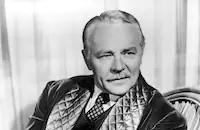
Charles Ruggles
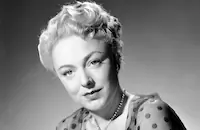
Virginia Field

Rita Johnson

Zasu Pitts
Nona Griffith

Nana Bryant
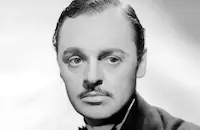
Jerome Cowan
Luella Gear

Howard Freeman
Catherine Craig
John Vosper

Ann Doran
Carol Coombs
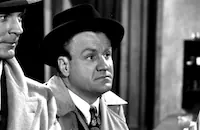
Lyle Latell
Boyd Davis
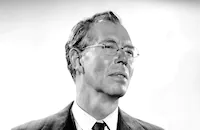
Walter Baldwin
Joseph J. Green
Jack Chefe
Libby Taylor
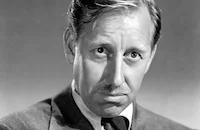
Frank Ferguson
Nicodemus Stewart
Jimmie Dundee
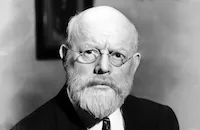
Howard Mitchell
Georges Renavent
James Martinez
Albin Robeling
John Maxwell
Crew
Chico Alonso
Lionel Banks
Sam Comer
Farciot Edouart
Grace Gregory
Edith Head
Ellsworth Hoagland
Frederick Hollander
Harry Lindgren
Russell Metty
Joel Moss
Leonard Spigelgass
Wally Westmore

Film Details
Technical Specs

Articles
Eddie Albert (1906-2005)
The son of a real estate agent, Albert was born Edward Albert Heimberger in Rock Island, Ill., on April 22, 1906. His family relocated to Minneapolis when he was still an infant. Long entralled by theatre, he studied drama at the University of Minnesota. After years of developing his acting chops in touring companies, summer stock and a stint with a Mexican circus, he signed a contract with Warner Bros. and made his film debut in Brother Rat (1938). Although hardly a stellar early film career, he made some pleasant B-pictures, playing slap happy youths in Brother Rat and a Baby (1940), and The Wagons Roll at Night (1941).
His career was interrupted for military service for World War II, and after his stint (1942-45), he came back and developed a stronger, more mature screen image: Smash-Up: The Story of a Woman (1947); Carrie (1952); his Oscar® nominated turn as the Bohemian photographer friend of Gregory Peck in Roman Holiday (1953); a charming Ali Hakim in Oklahoma (1955); and to many critics, his finest hour as an actor, when he was cast unnervingly against type as a cowardly military officer whose lack of commitment to his troops results in their deaths in Attack! (1956).
As he settled into middle-age, Albert discovered belated fame when he made the move to Hooterville. For six seasons (1965-71), television viewers loved Eddie Albert as Oliver Wendal Douglas, the bemused city slicker who, along with his charming wife Lisa (Eva Gabor), takes a chance on buying a farm in the country and dealing with all the strange characters that come along their way. Of course, I'm talking about Green Acres. If he did nothing else, Alberts proved he could be a stalwart straight man in the most inane situations, and pull it off with grace.
After the run of Green Acres, Albert found two of his best roles in the late stages of his career that once again cast him against his genial, good-natured persona: the fiercly overprotective father of Cybill Shepherd in The Heartbreak Kid (1972), for which he earned his second Oscar® nomination; and the sadistic warden in Robert Aldrich's raucous gridiron comedy The Longest Yard (1974). Soon, Albert was in demand again, and he had another hit series, playing a retired police officer who partners with a retired con artist (Robert Wagner) to form a detective agency in Switch (1975-78).
The good roles slowed down slightly by the dawn of the '80s, both film: The Concorde: Airport '79 (1979), How to Beat the High Co$t of Living (1980), Take This Job and Shove It (1981); and television: Highway to Heaven, Murder, She Wrote, Thirtysomething, offered him little in the way of expansion. Yet, Albert spent his golden years in a most admirable fashion, he became something of activist for world health and pollution issues throughout the latter stages of his life. It is widely acknowledged that International Earth Day (April 22) is honored on his birthday for his tireless work on environemental matters. Albert was married to famed hispanic actress Margo (1945-85) until her death, and is survived by his son, actor Edward Albert, a daughter, and two granddaughters.
by Michael T. Toole

Eddie Albert (1906-2005)
Quotes
Trivia
Notes
According to the screen credits, David Niven appeared in the film by arrangement with Samuel Goldwyn. The film opens with the statement, "A Perfect Marriage is like a perfect crime...you never really get away with it...SOLOMON(?)." Frederick Hollander was borrowed from Warner Bros. to write this film's score. According to a January 1945 Hollywood Reporter news item, Barbara Stanwyck was originally slated to play the lead in the picture. This was Eddie Albert's first film after serving two-and-a-half years in the Navy. According to a Hollywood Reporter news item, Don DeFore was added to the film's cast in the first days of shooting; however, he was not in the released film. Ray Milland and Lizbeth Scott appeared in a Lux Radio Theatre broadcast of Samson Raphaelson's story on April 12, 1948.














